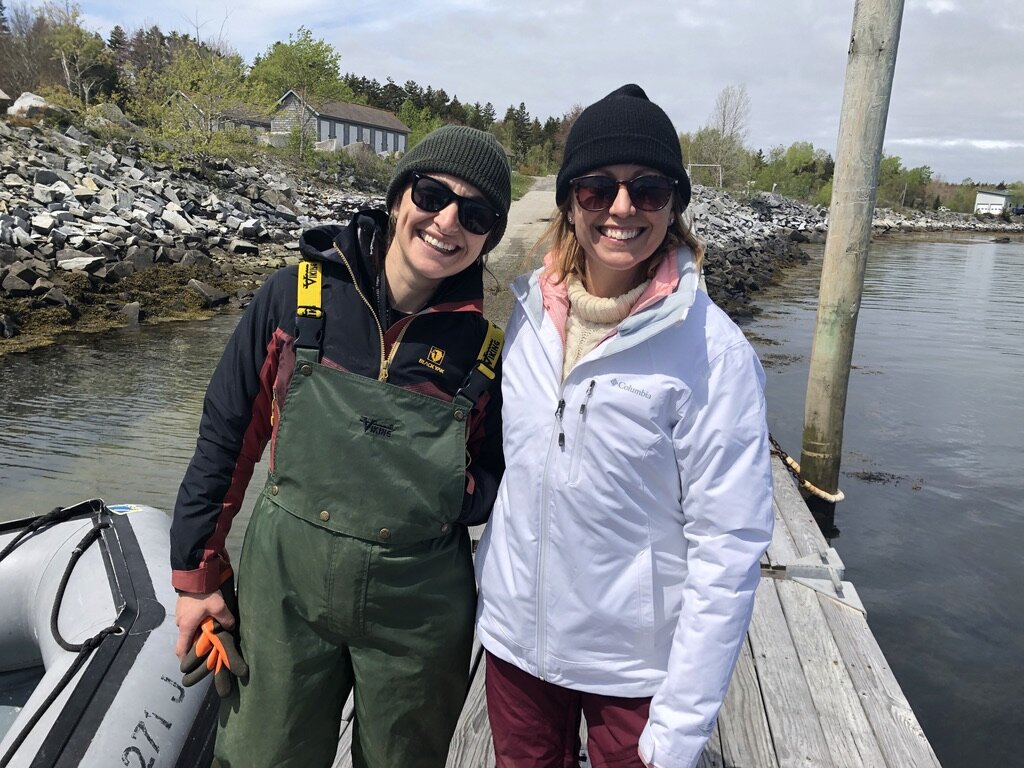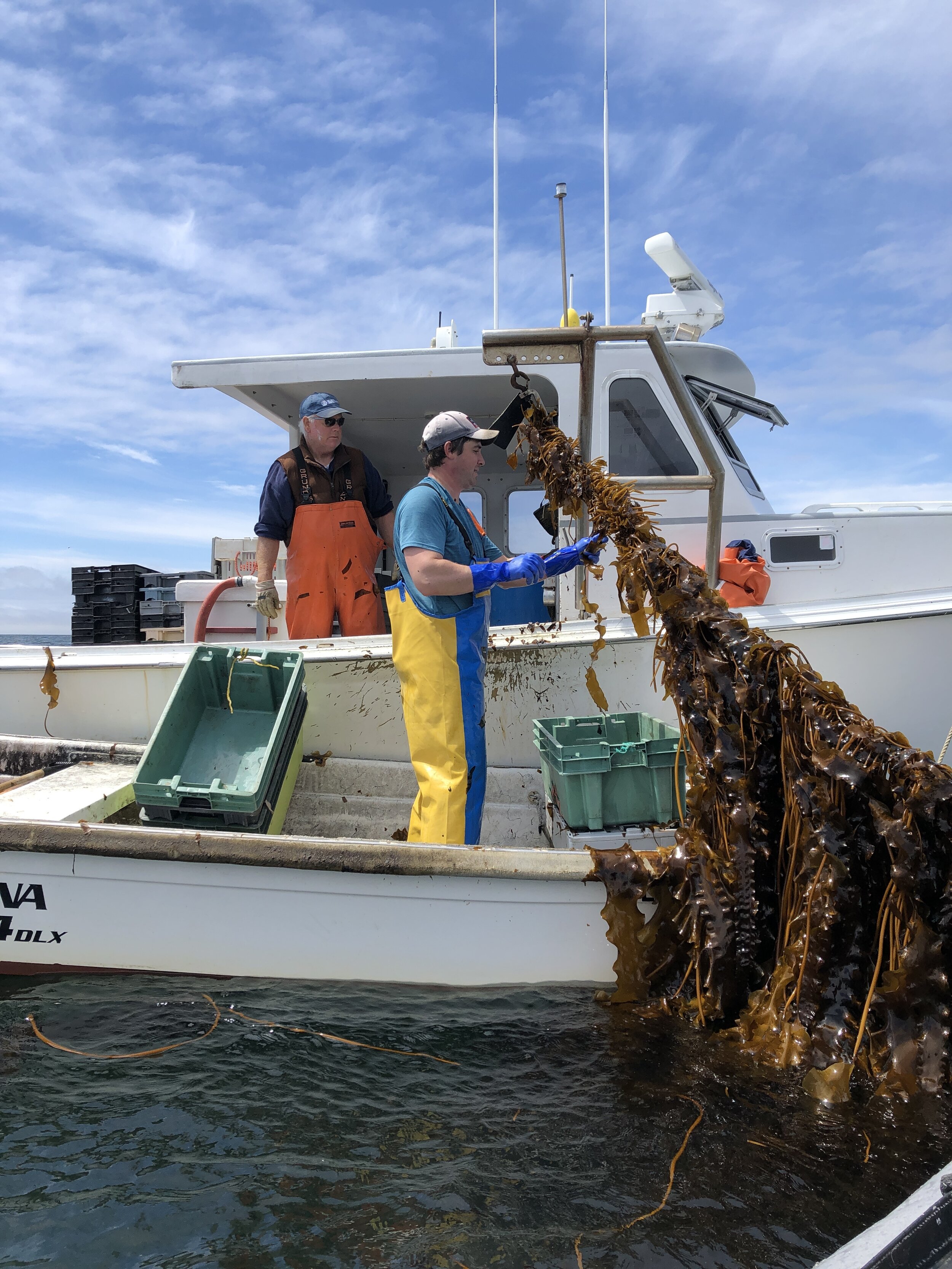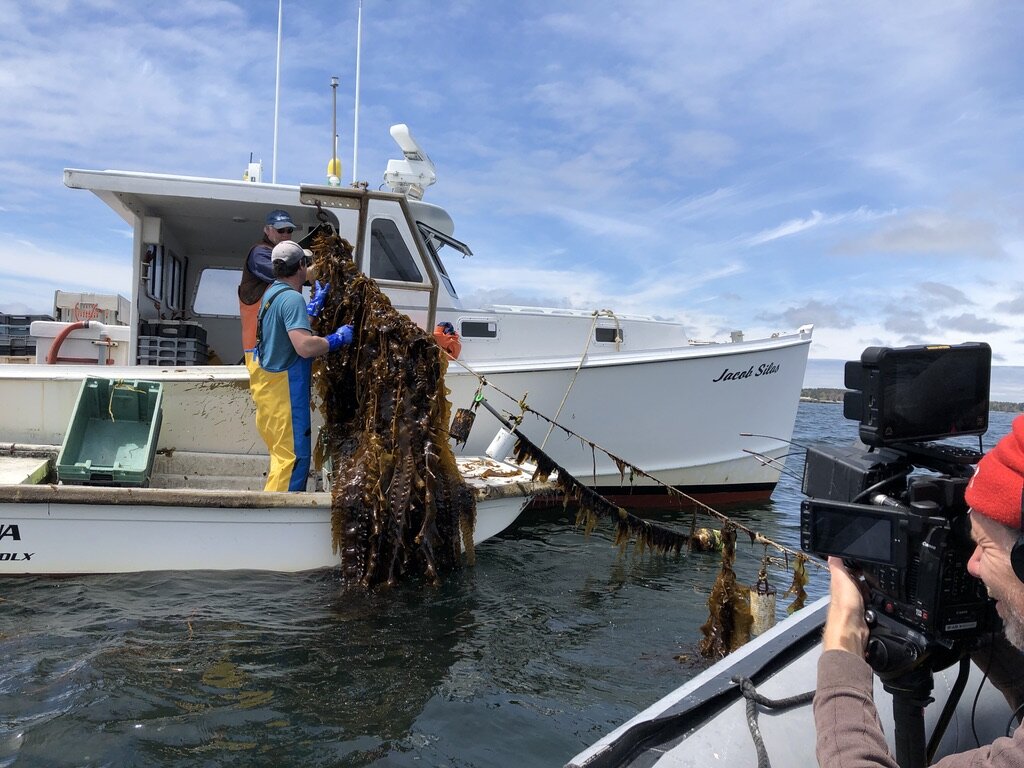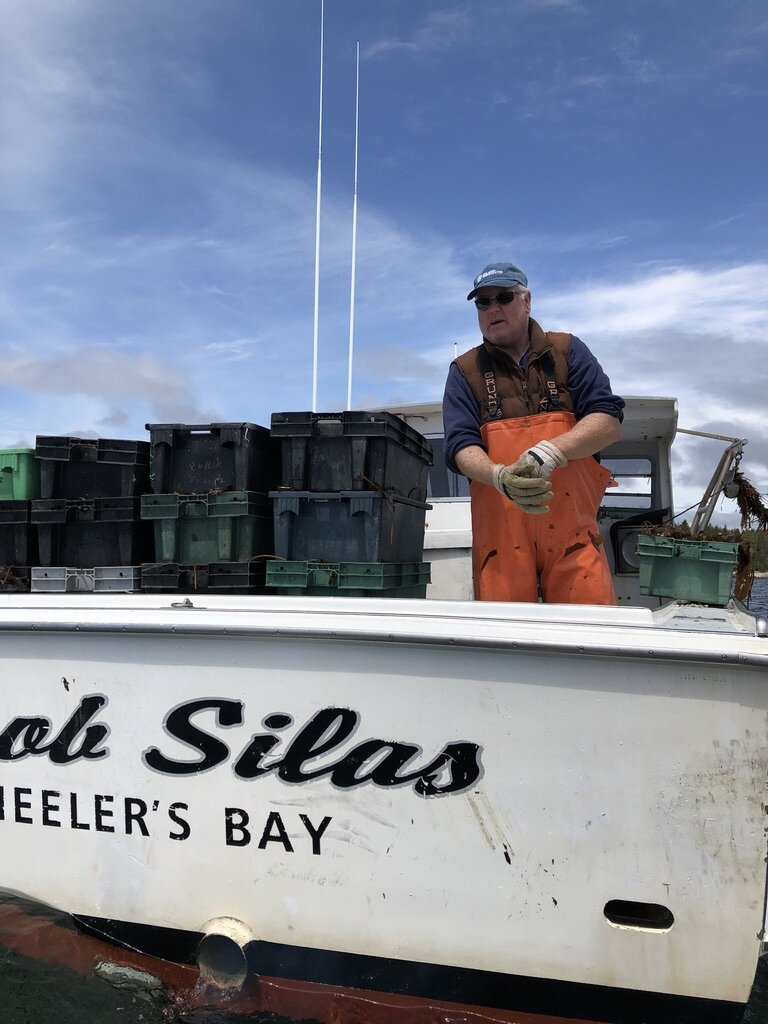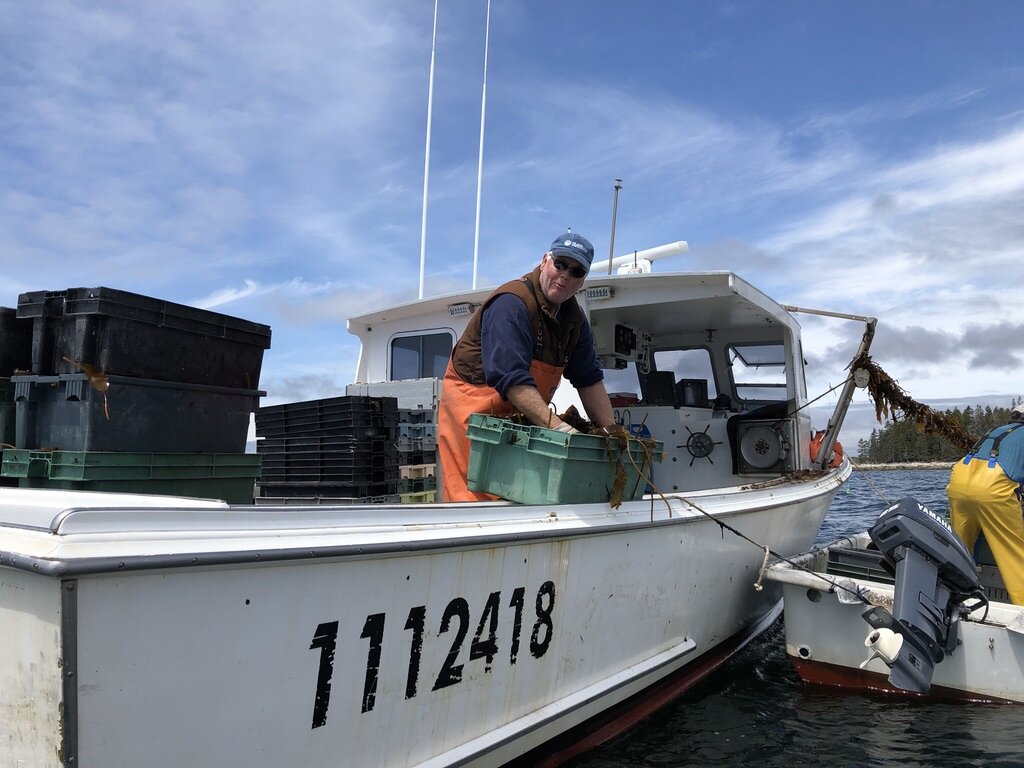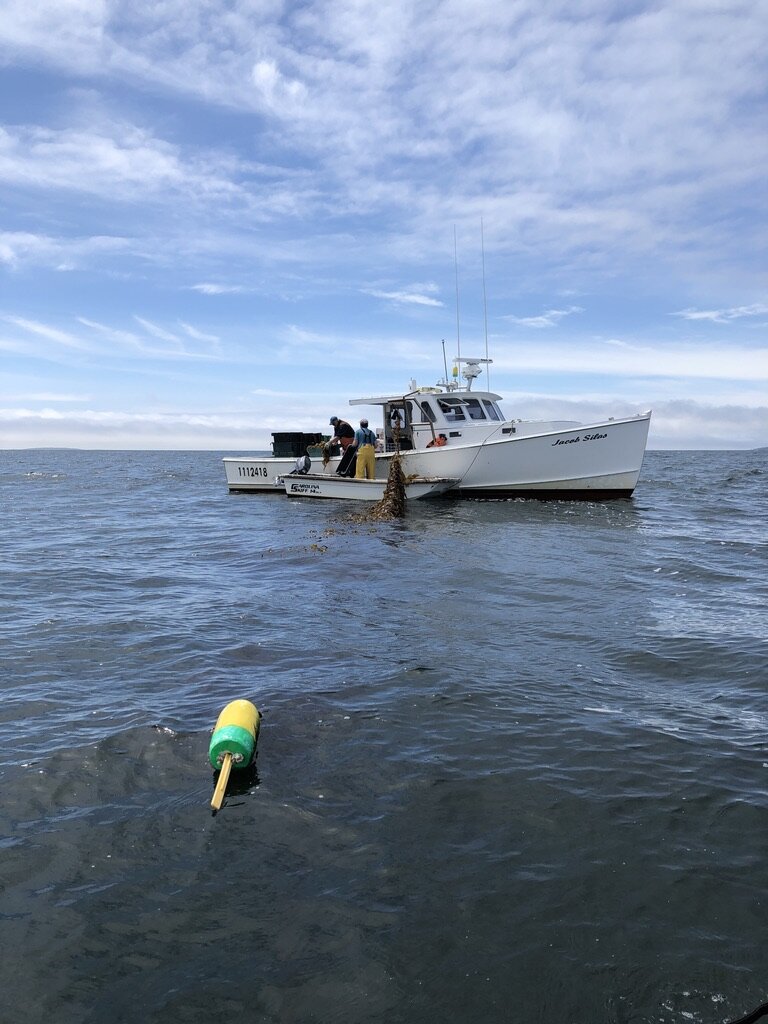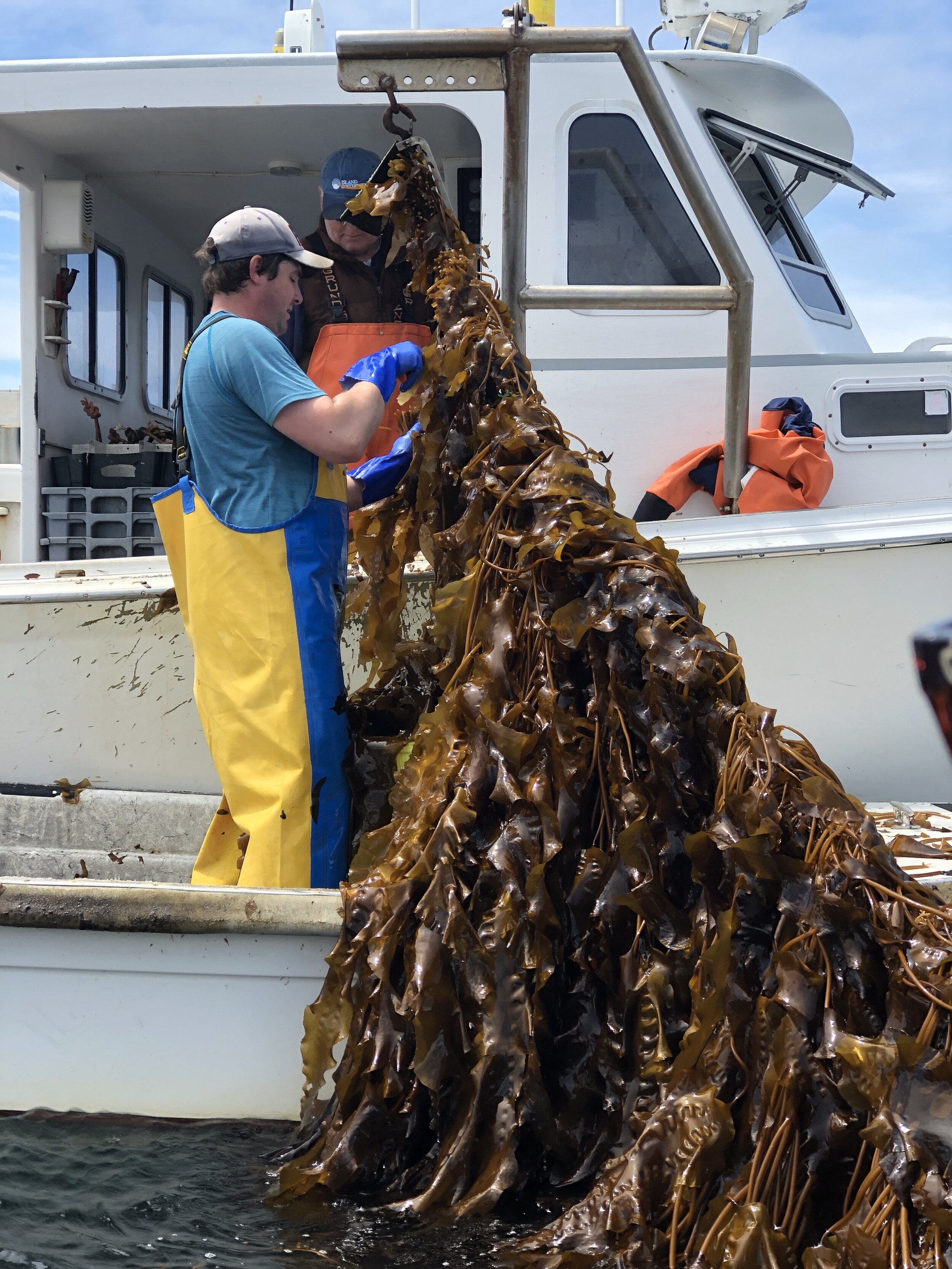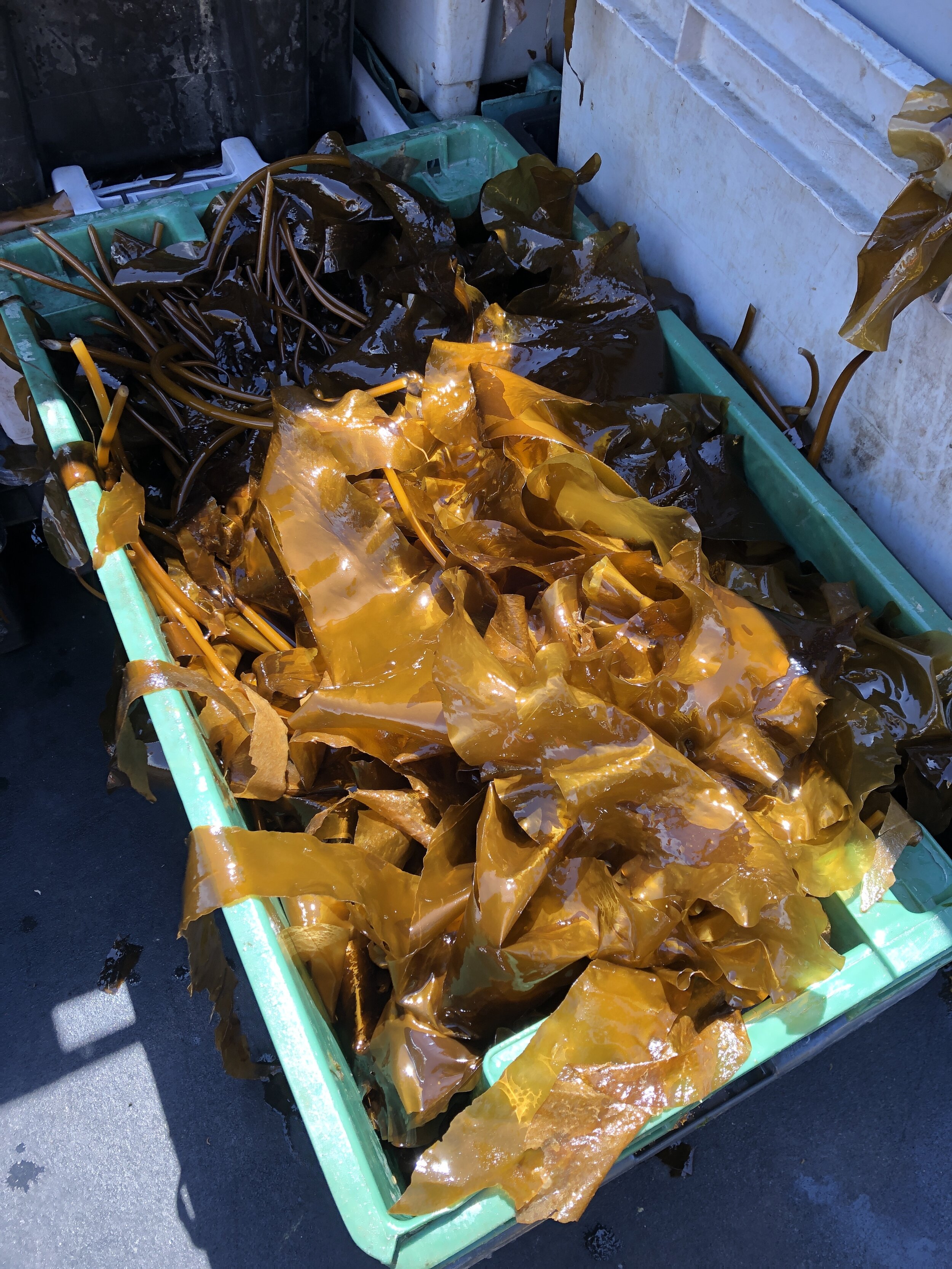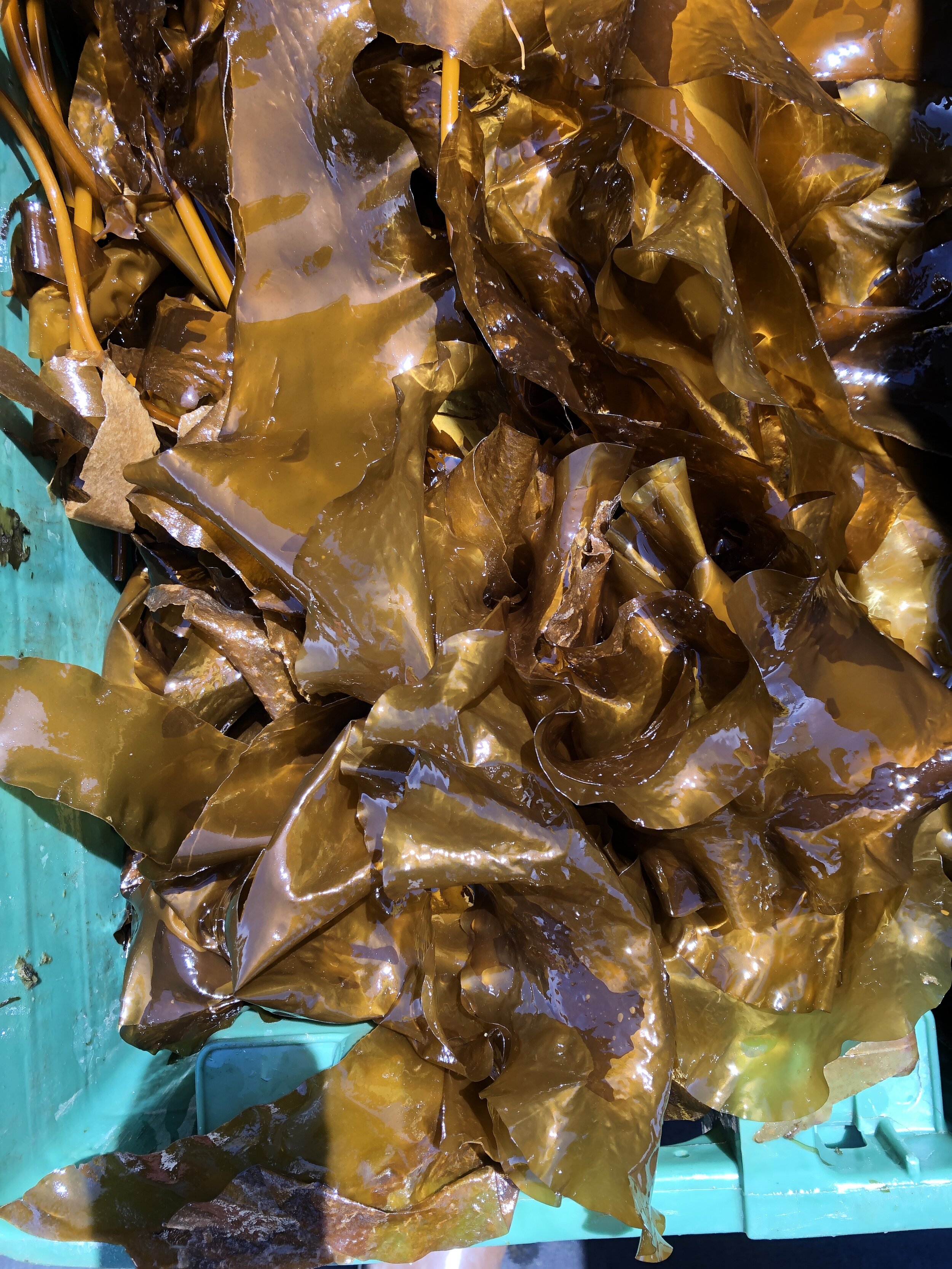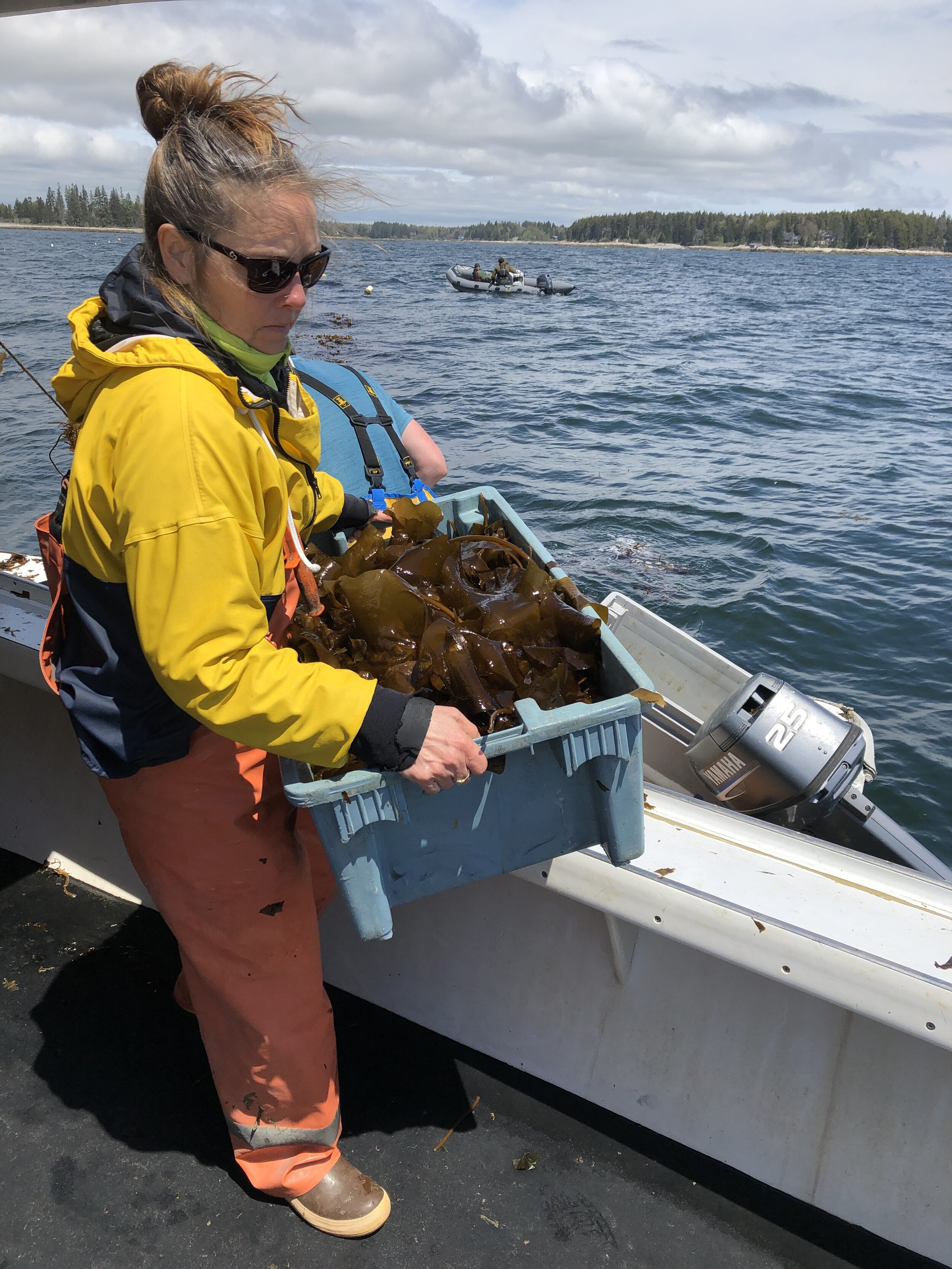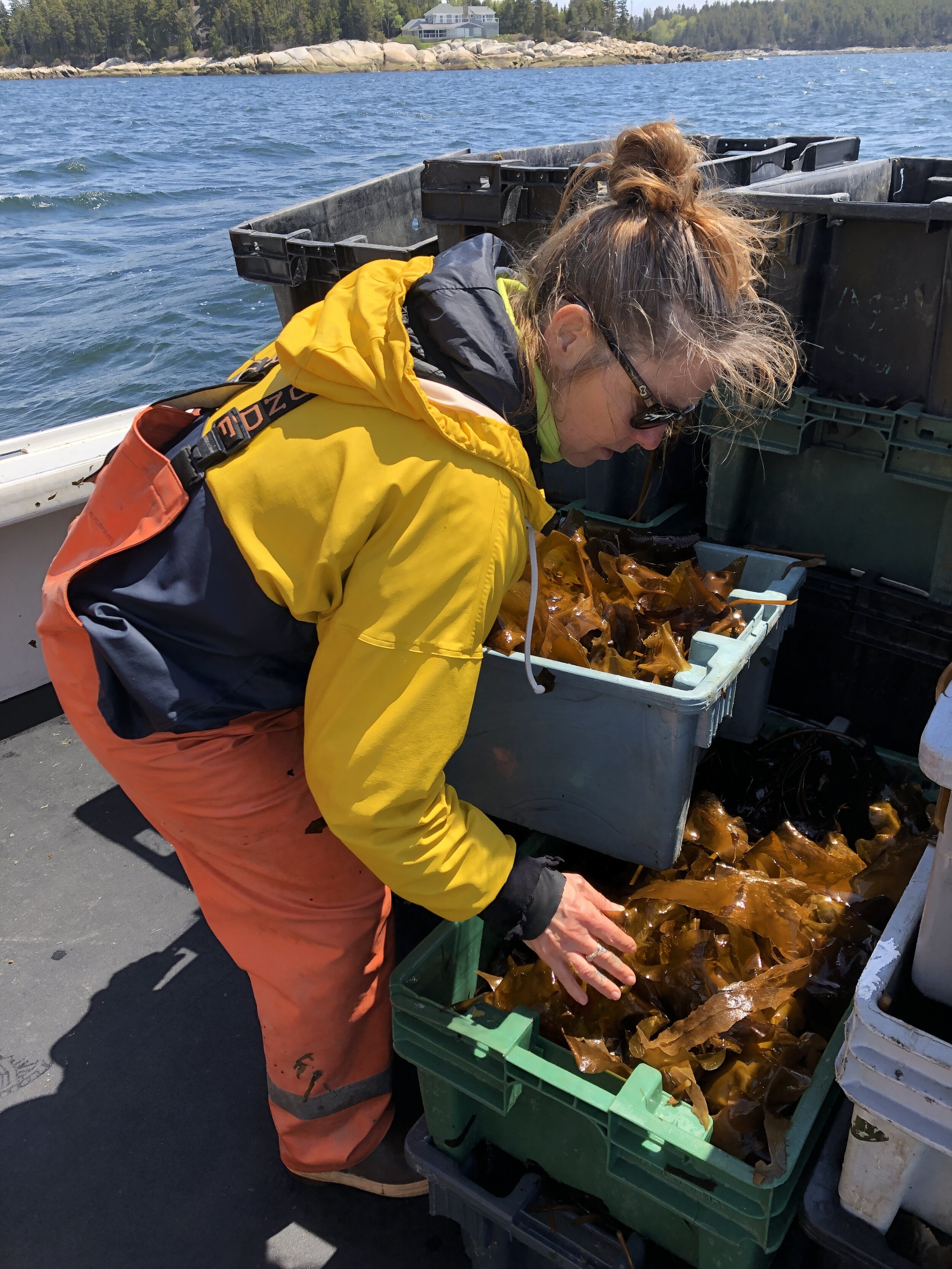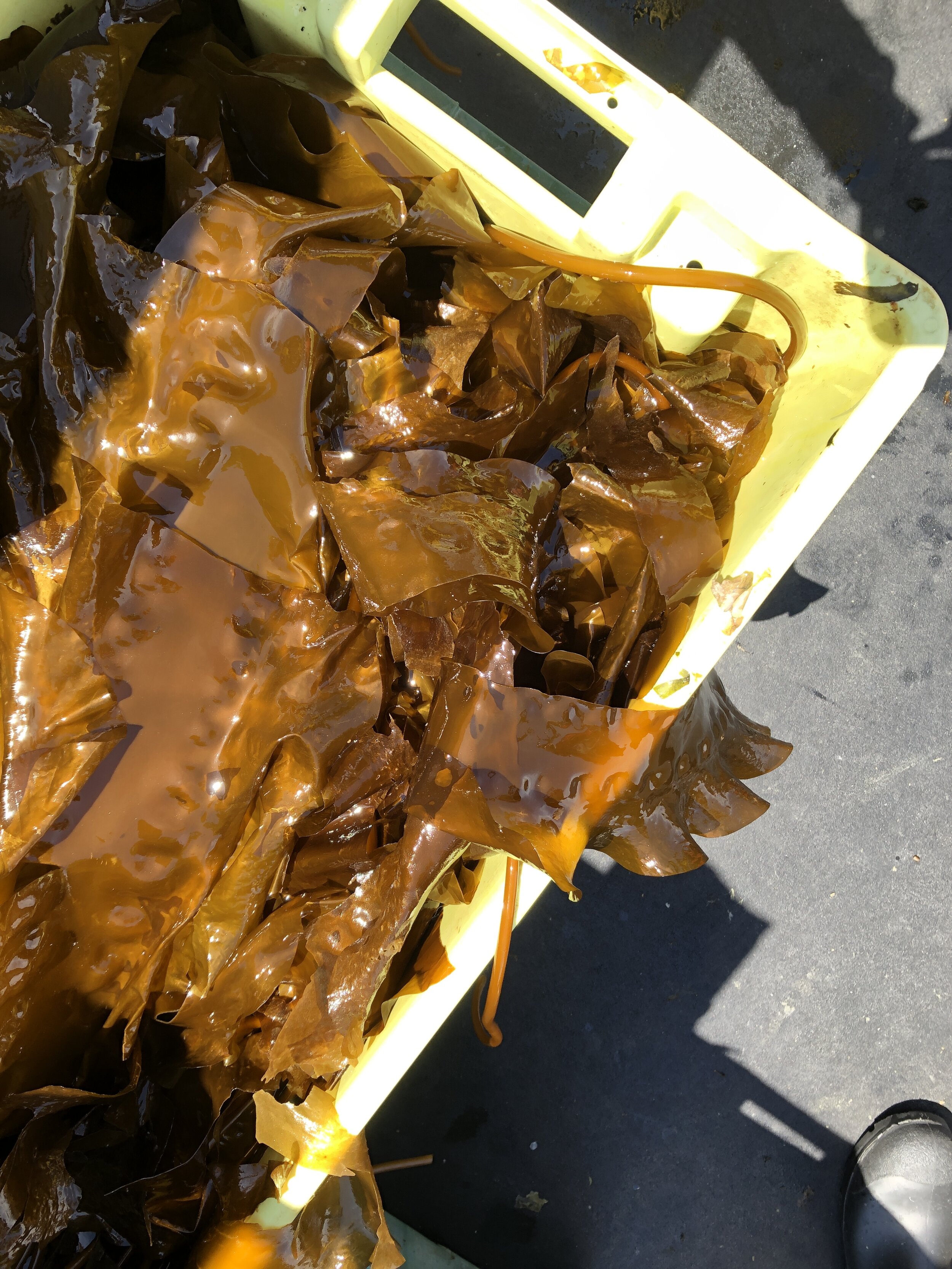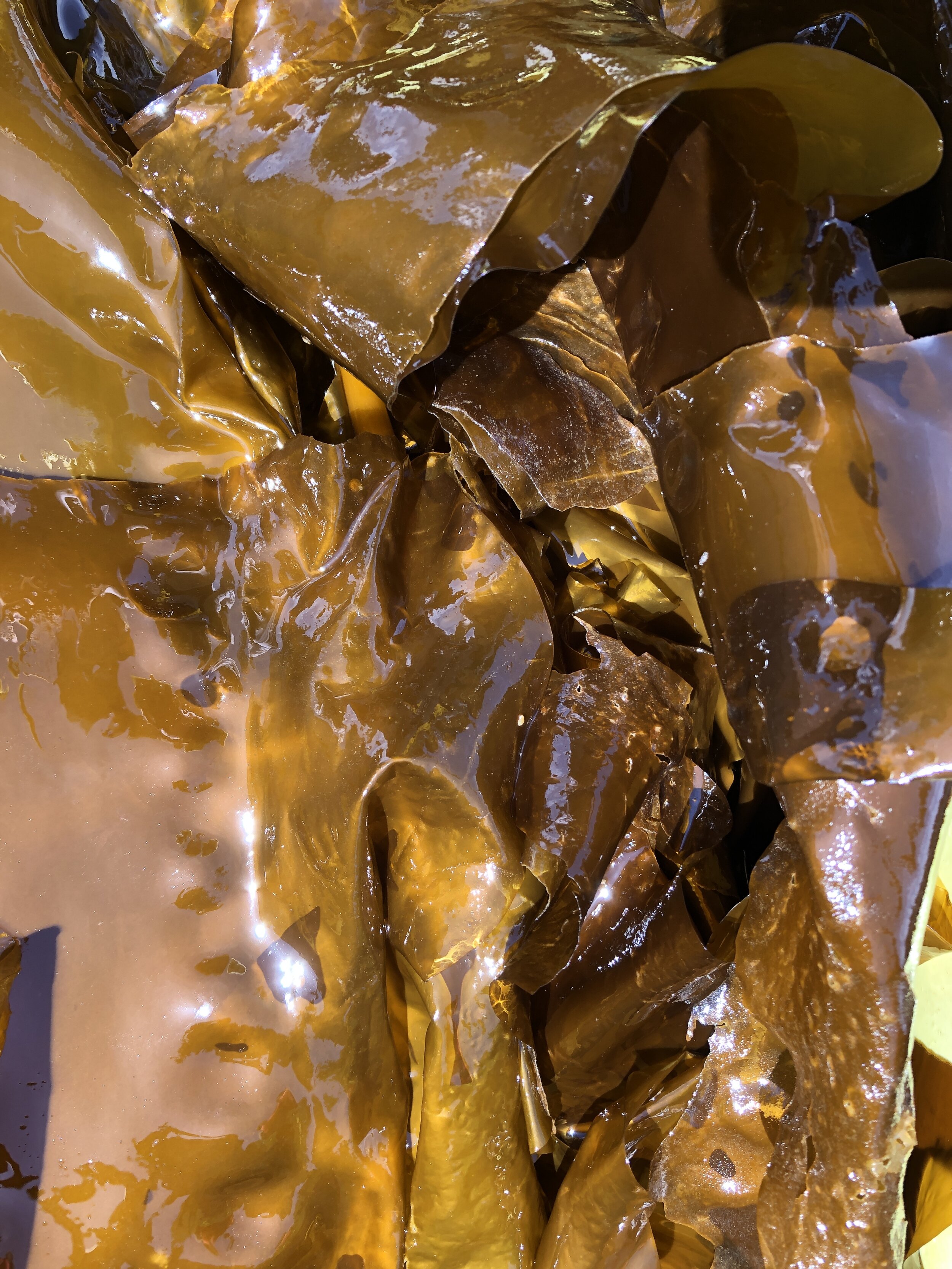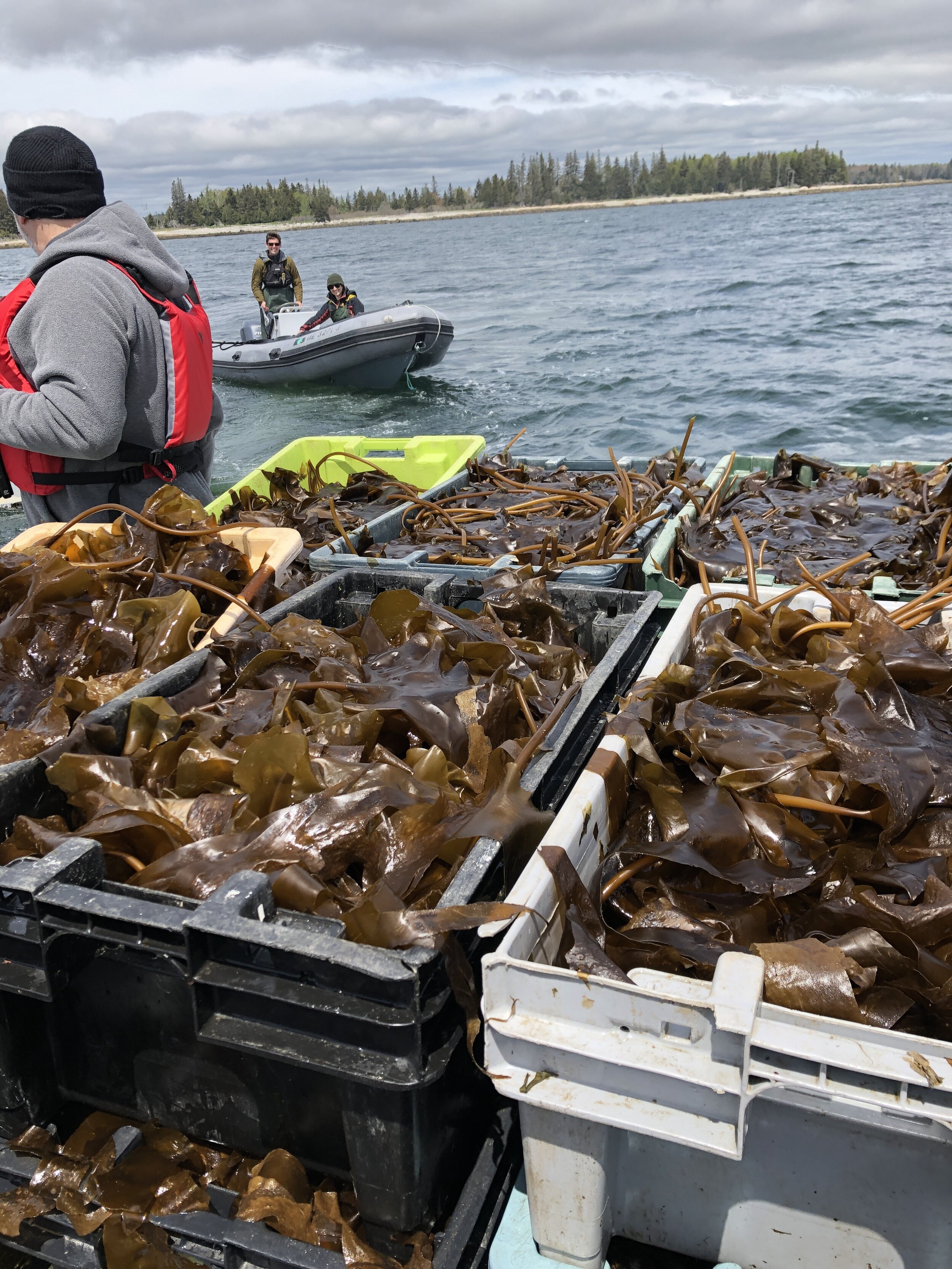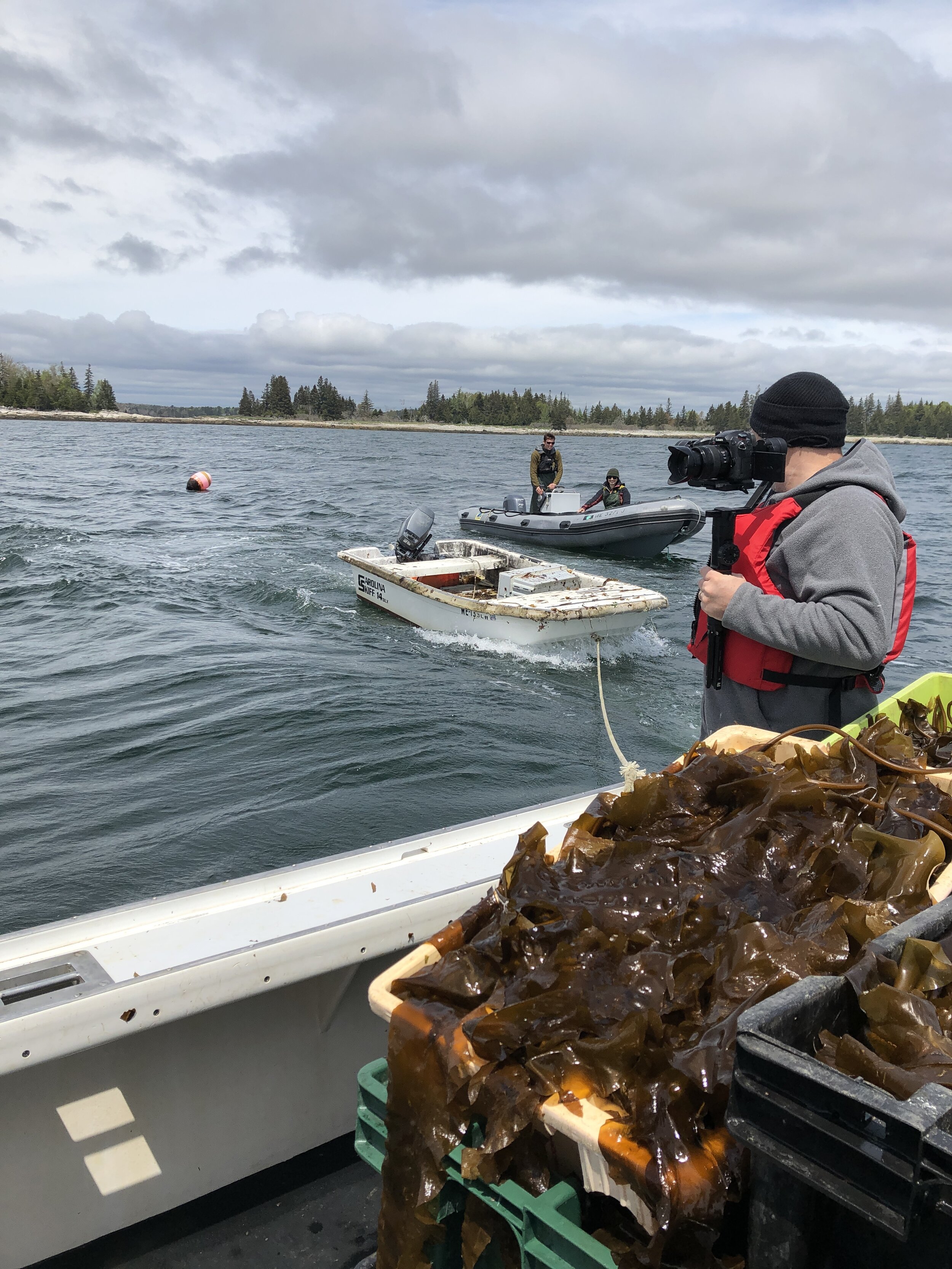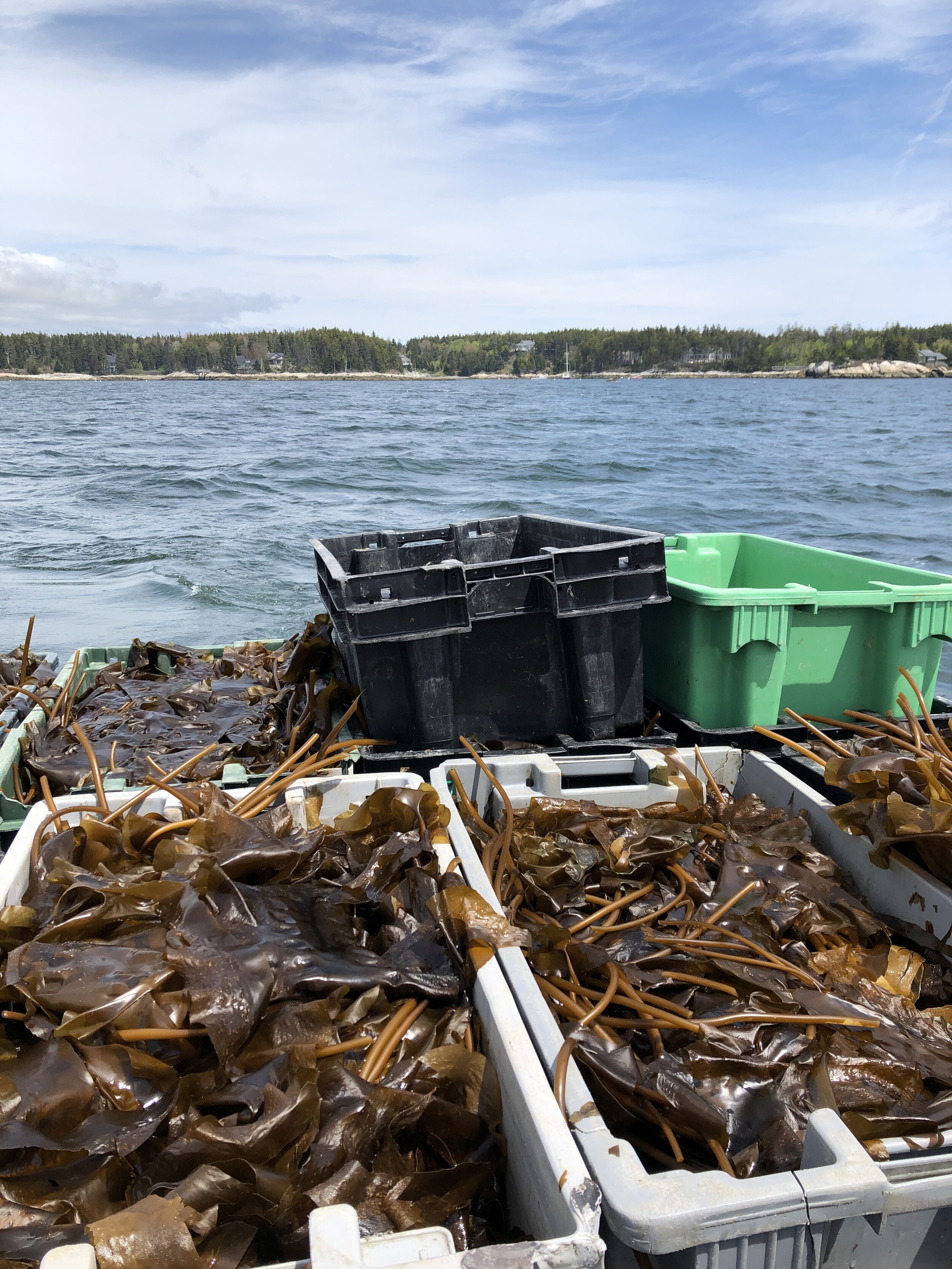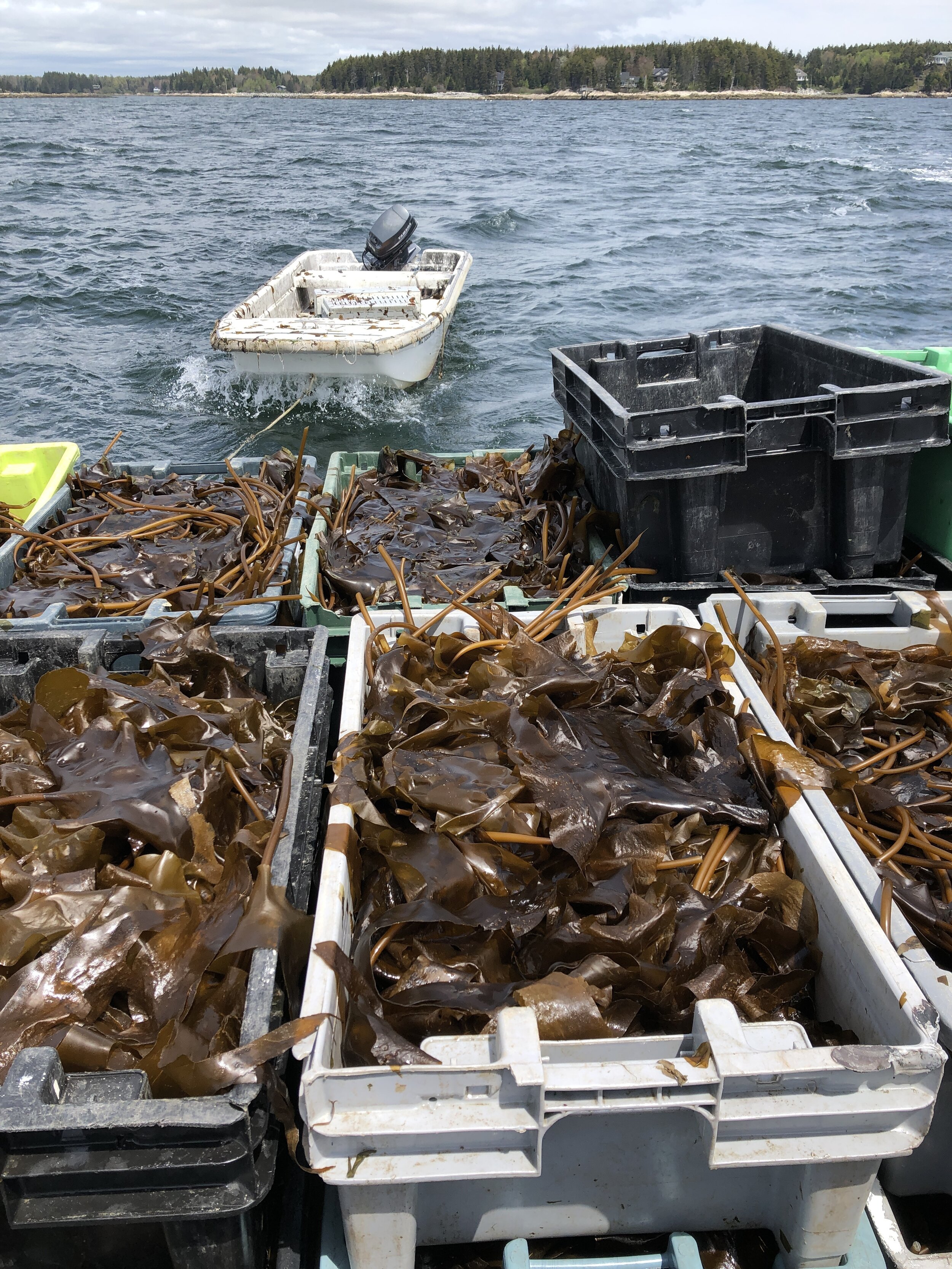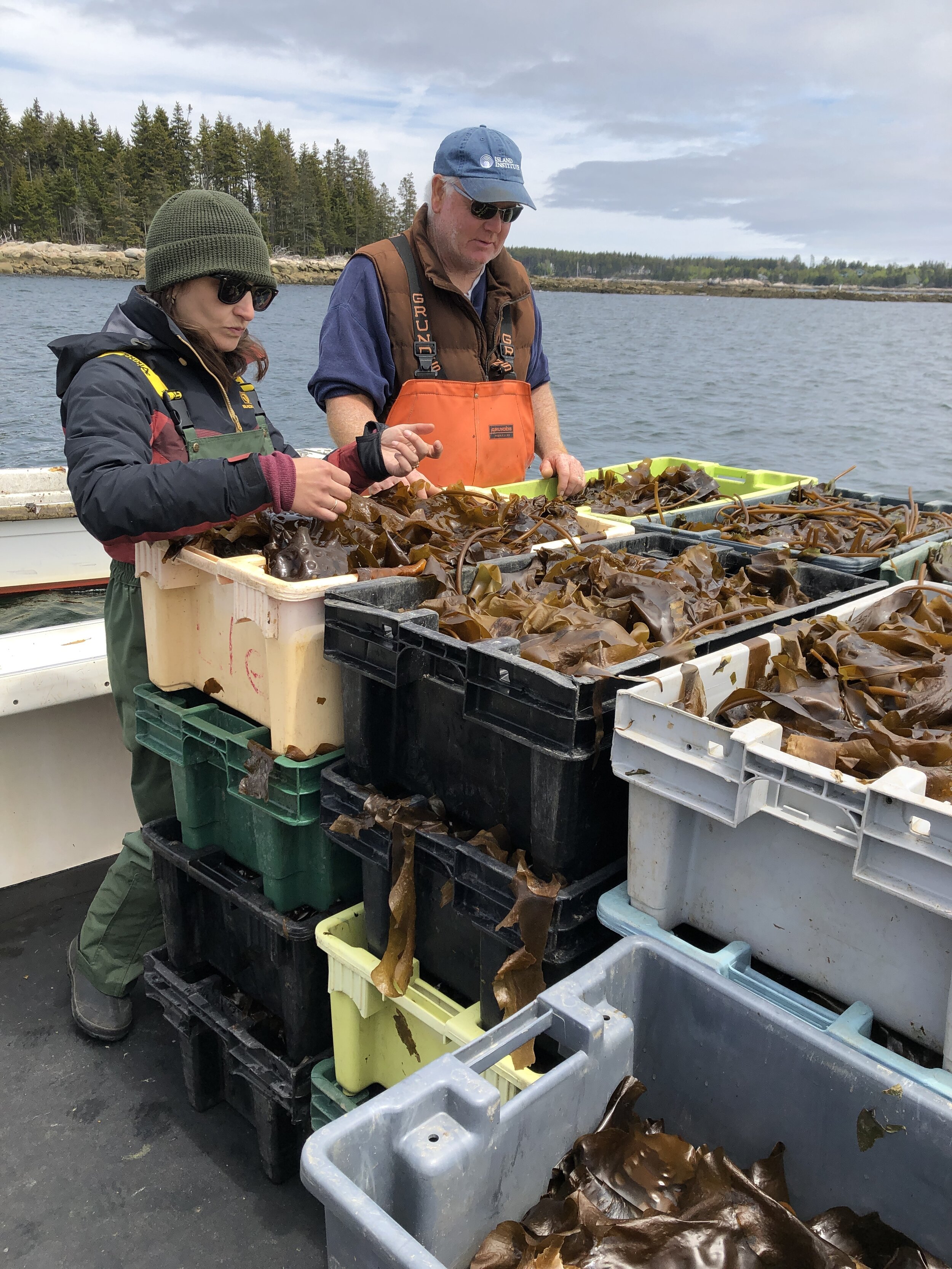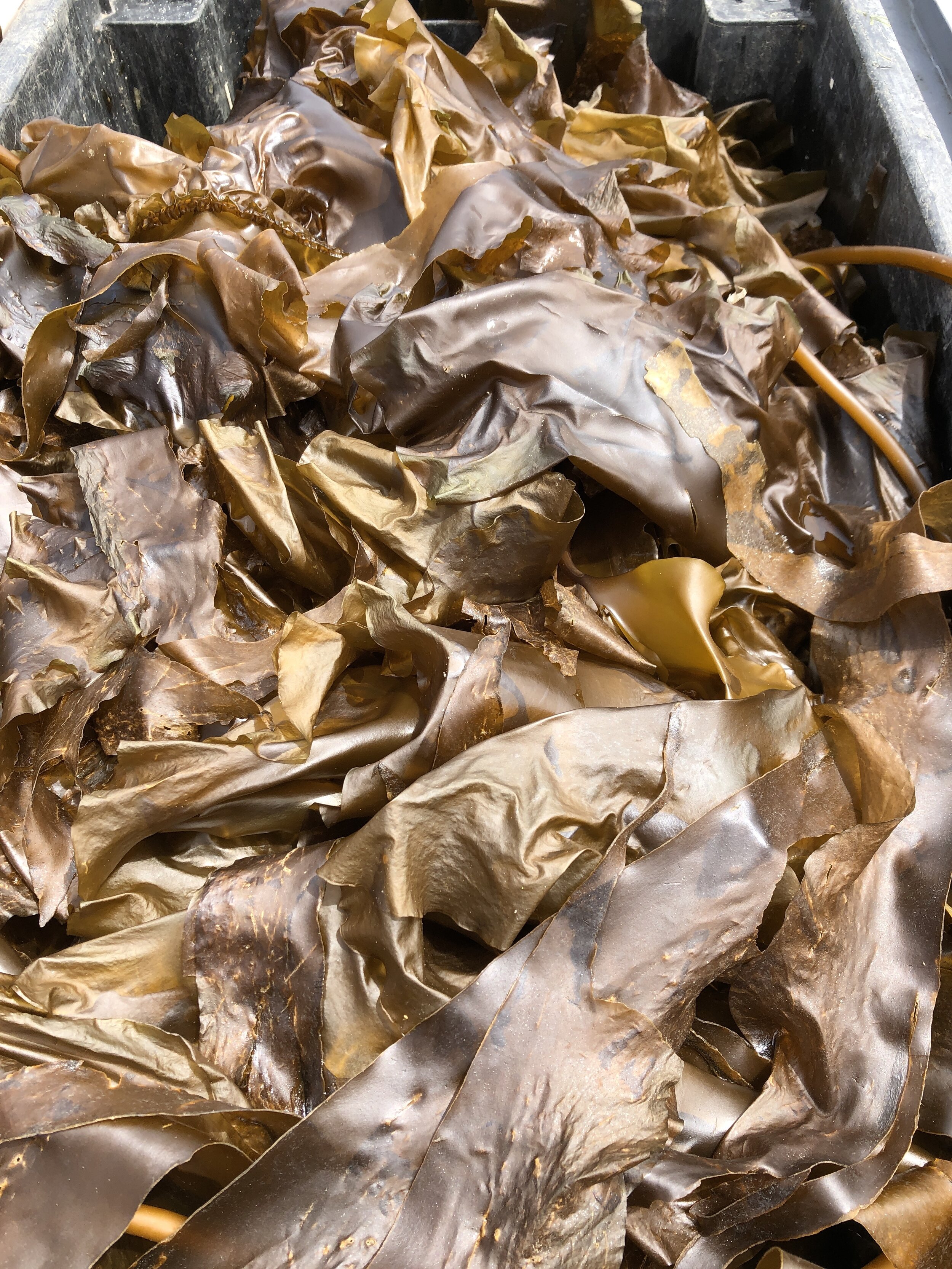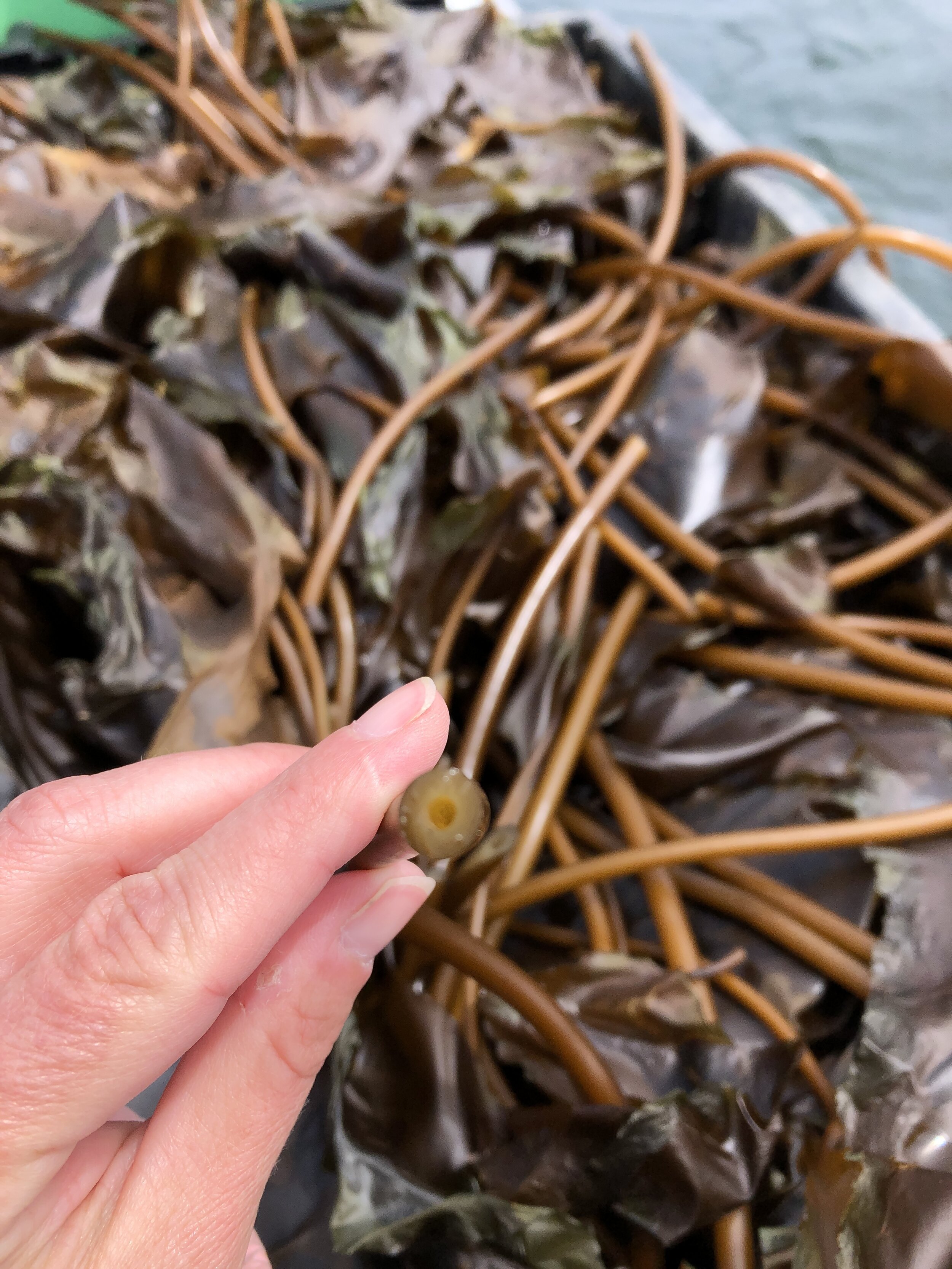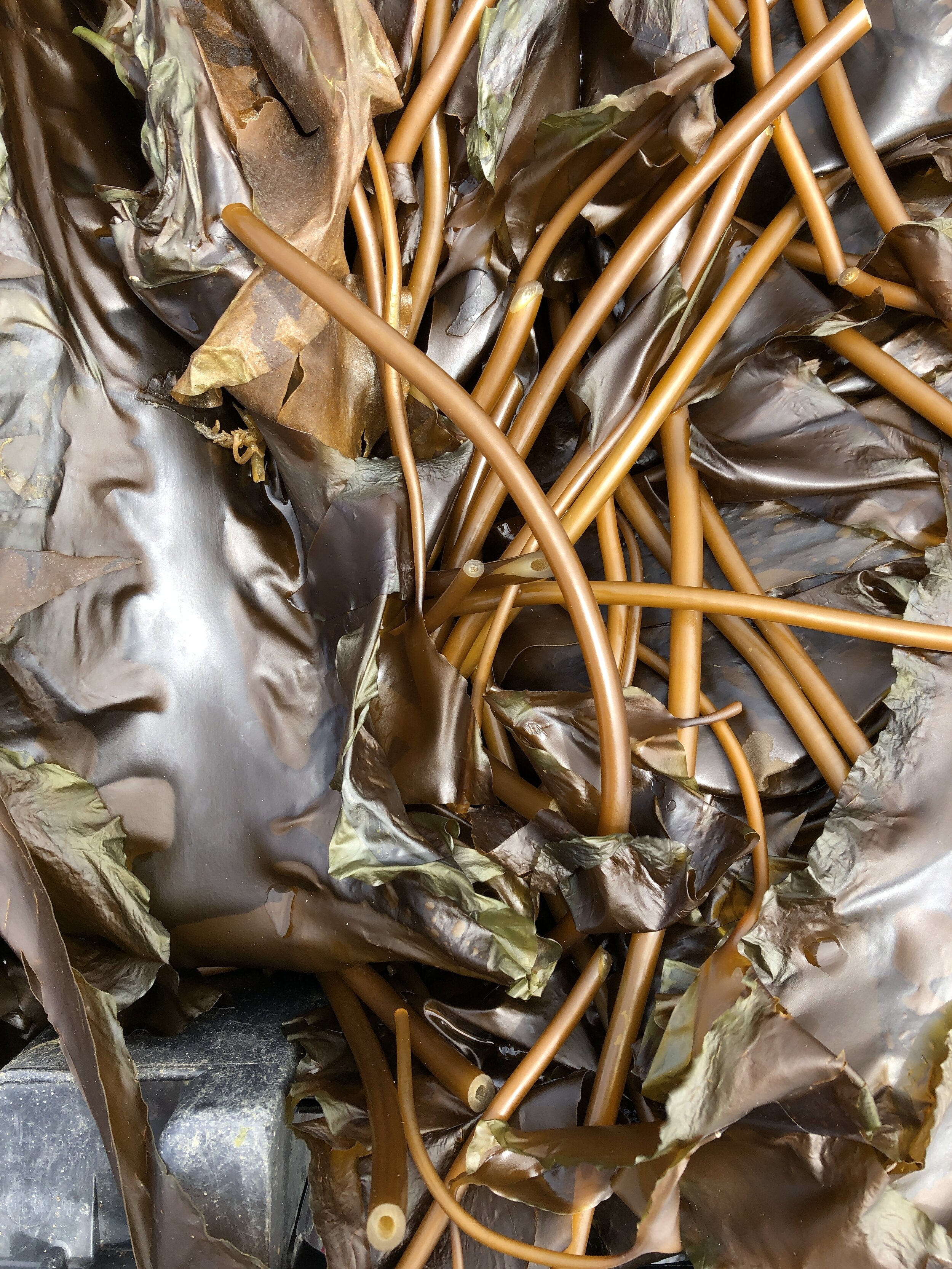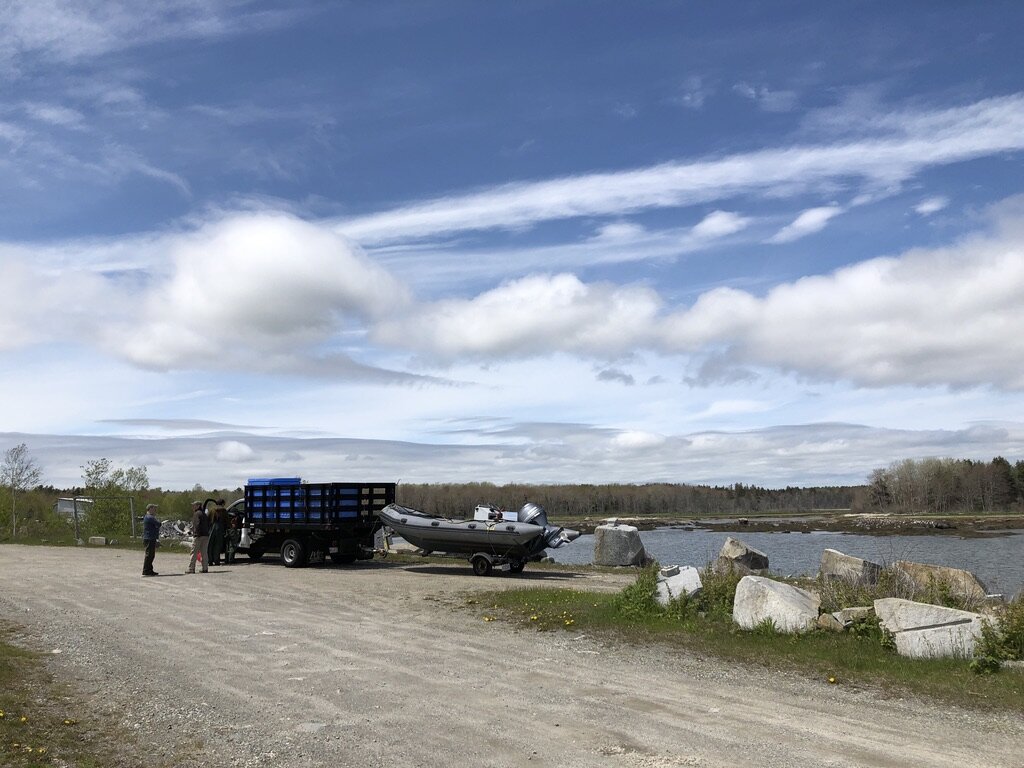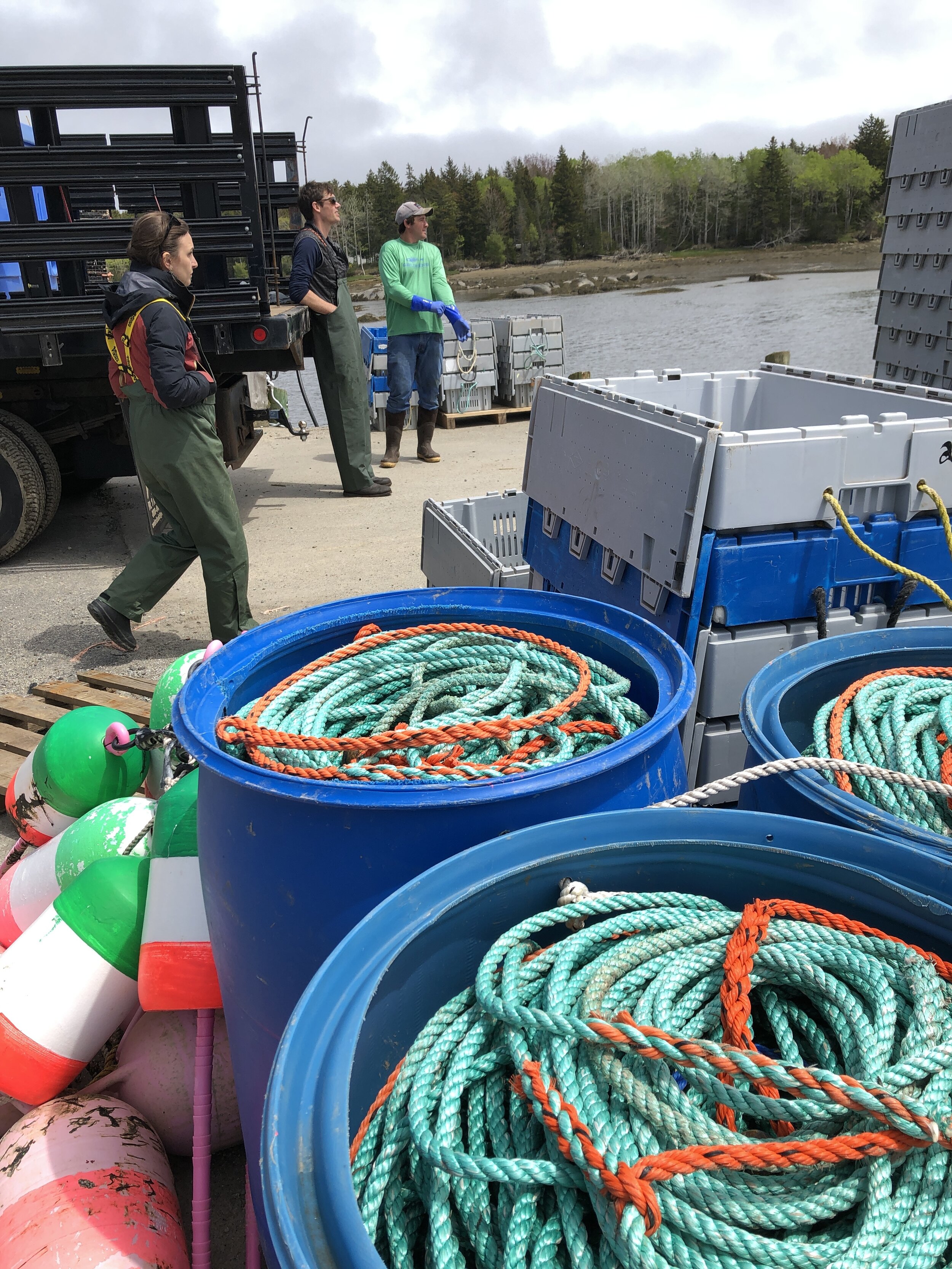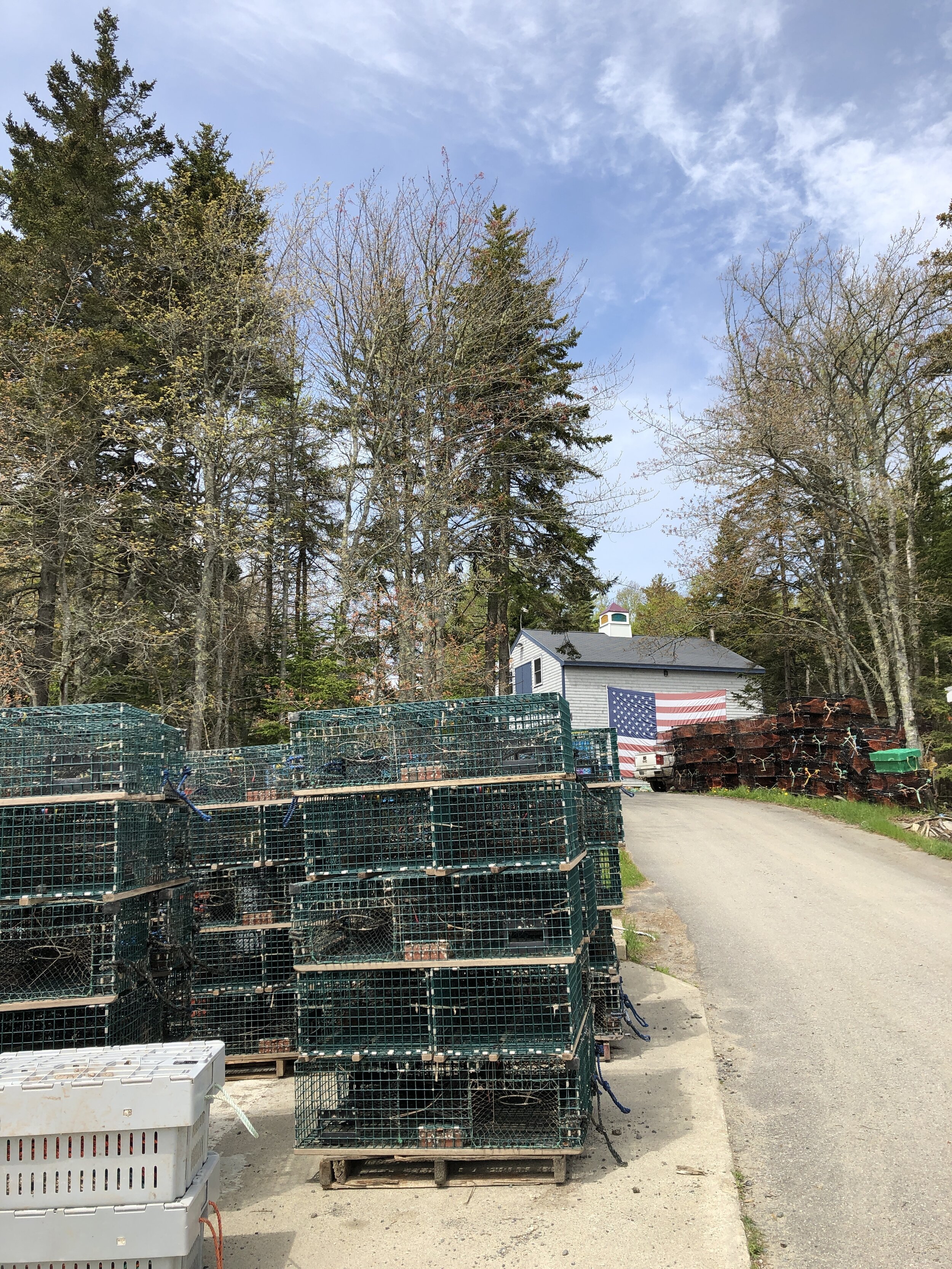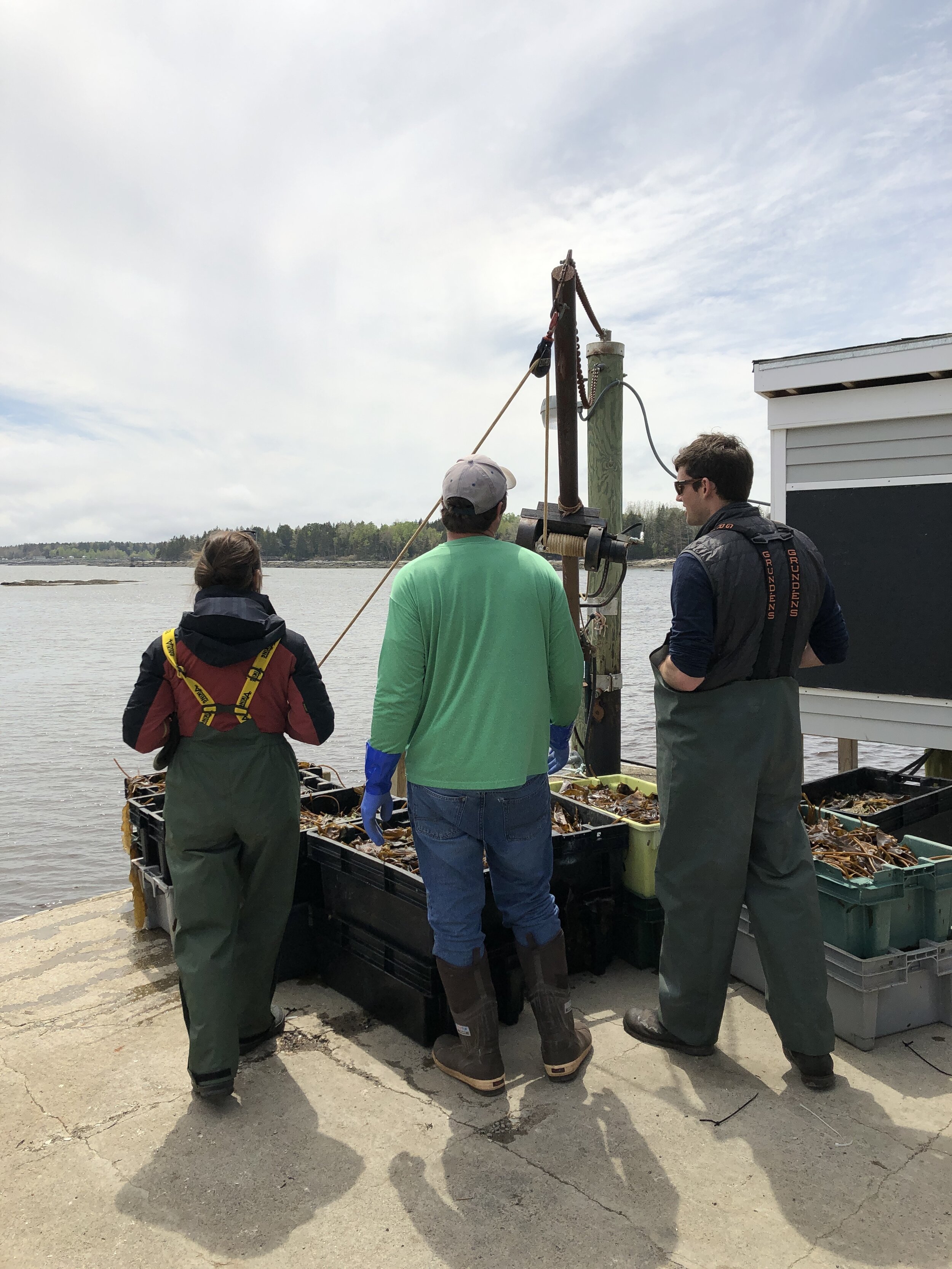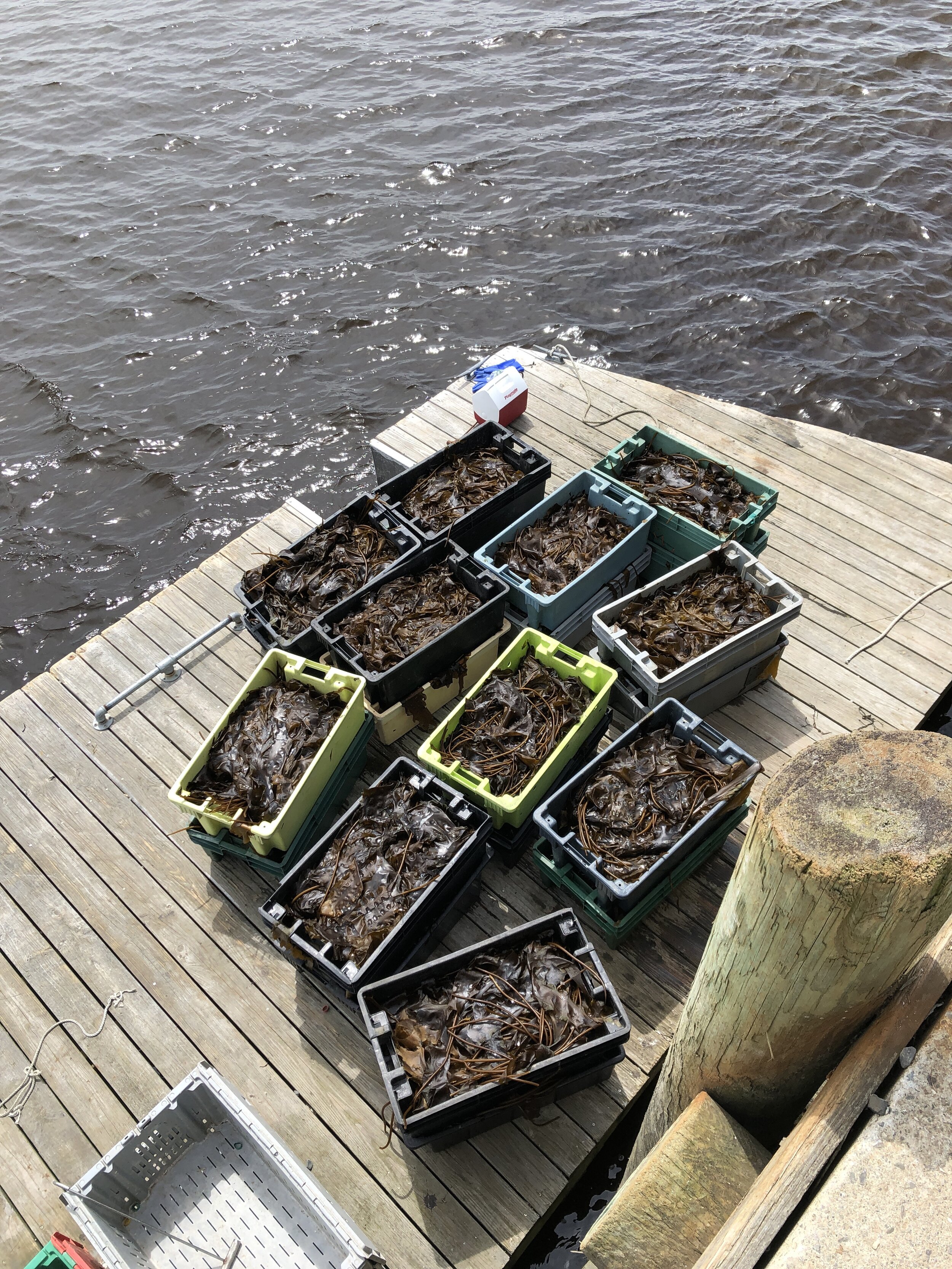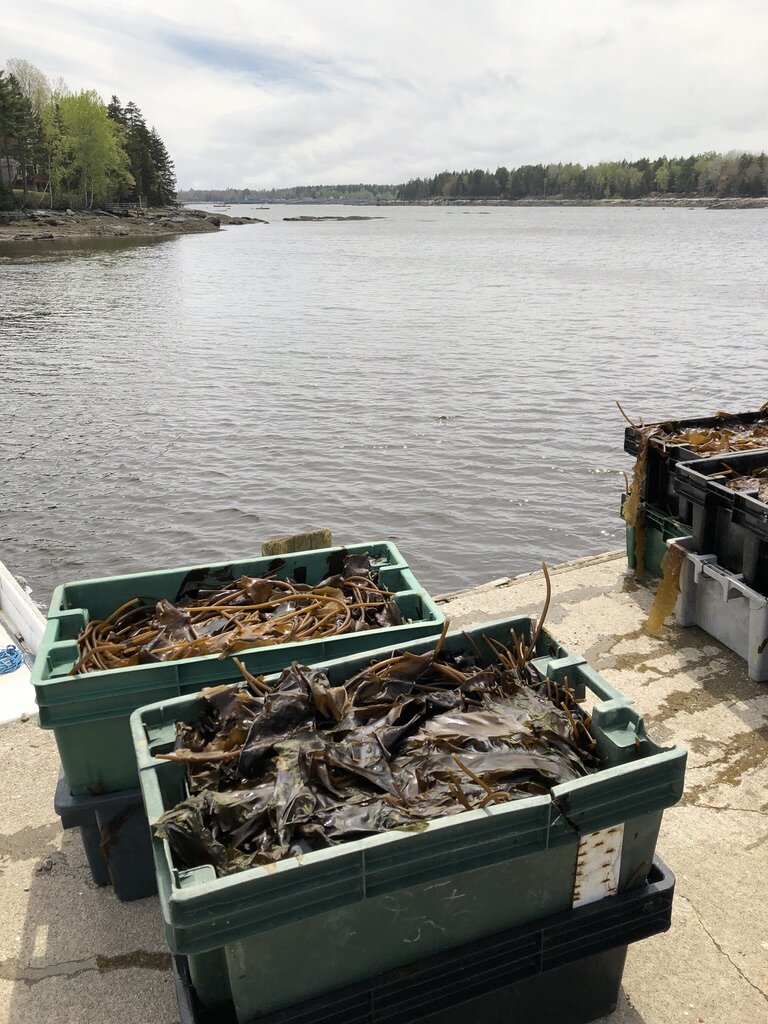Harvesting kelp with Atlantic Sea Farms' partner farmers in Maine
The Gulf of Maine is warming by about a hundredth of a degree every year, faster than 99 percent of all of the other bodies of water on the planet. What does that mean for the seafood industry here in Maine? The lobster industry is thriving, but diversifying the income streams for local fisheries is the key to the local economy’s long-term success.
Atlantic Sea Farms partners with a host of Maine farmers and provides them with technical support, lease support, gear set-up, harvest training and even free seeds. The process of cultivating kelp is really pretty simple.
Atlantic Sea Farms supplies farmers with seeded lines, which will begin to sprout in February or March.
Once the water begins to warm a bit and the days get a little longer, the kelp begins to grow. Kelp is an incredible plant. It grows very quickly — usually two to four inches, but sometimes up to 18 inches each day — and the dense vegetation provides shelter for animals along with acting as a carbon sponge. Through photosynthesis, kelp takes in CO2, nitrogen, and phosphorus and outputs oxygen. This creates a halo of remediated water around kelp farms, creating a win-win for farmers and the oceans. When it’s time to harvest, the farmer simply pulls in the lines, which are now covered in a thick carpet of kelp, and cuts the kelp free.
The growing cycle for kelp works well with the lobstermen's schedules — kelp and lobster have opposite seasons, so working with Atlantic Sea Farms to cultivate kelp offers these farmers additional income during a time when there’s no money coming in from lobstering.
Keith Miller, captain of the boat we filmed here in Spruce Head, Maine, started growing kelp a couple of years ago in a bid to continue his family’s multi-generation legacy of making their living from the sea. Karen Cooper, one of the company’s partner farmers who came out with us for the day, got into kelp farming after seeing how a friend used kelp as part of her nutrition-based battle against breast cancer.

